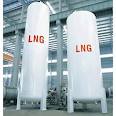Jordan and Israel Secret Talks, to Import Natural Gas from Israel’s Tamar Field

There have been secret talked to import natural gas from Israel’s Tamar field to Jordan according to recent reports.
The gas would be delivered through the Israeli gas pipeline that serves Israel Chemicals’ Dead Sea Works plant in Sodom. Extending the pipeline to reach Jordan would not require a large investment, Haaretz reported.
The negotiations are a sign of how desperate the kingdom is; it is considering a move as politically sensitive as sourcing gas from Israel.
An Israeli gas contract with Jordan would strengthen bilateral ties and help Jordan’s beleaguered King Abdullah, who has seen his support fall amid rising energy prices and other woes.
Jordan imports 97% of its fuel needs at a cost of nearly a quarter of its gross domestic product, and 88% of the energy it consumes comes in the form of natural gas.
Until the revolution in Egypt that brought down President Hosni Mubarak in early 2011, Jordan received its natural gas from Egypt via a pipeline through Sinai under a contract for annual imports of about 3 billion cubic meters.
Like Israel, however, Jordan saw its gas supply cut off by sabotage starting in February 2011, which created long disruptions.
As a result, Jordan, like Israel, was forced to burn more expensive fuels at its power stations. The country was saddled with extra costs amounting to $5.6 bln for electricity production, forcing the government to increase subsidies by $1.6 bln to avoid doubling the price of electricity.
Unlike the contract with Israel, which was unilaterally canceled by the Egyptians last April, the supply to Jordan was recently renewed.
Jordan is also examining additional sources of natural gas, including from Qatar and Iraq, as well as the importing of liquefied natural gas by ship. Jordanian government sources recently said a restoration of Egyptian gas alone would not solve the kingdom’s energy crisis if it continues to depend on imported fuel for half its electricity production.
Jordan’s Arab Potash Company produces potash, fertilizer and other products from the raw material produced at the Dead Sea. The company is 32%-owned by the Jordanian government and 28%-owned by the Canadian giant Potash Corporation of Saskatchewan. Other shareholders include the Arab Mining Company 20% and the Islamic Development Bank.
In addition to the political problems an Israeli gas deal would entail for Jordan, Tamar has limited capacity for delivering gas because it has a single pipeline running from the offshore field to the Israeli coast.
But by 2015 Tamar is expected to have installed additional compressors, which would increase the pipeline’s capacity by 25 and enable it to serve more customers.

